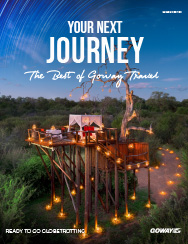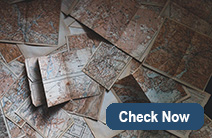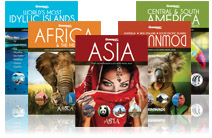Morocco History
Archaeological evidence suggests that Morocco has been inhabited since prehistoric times while the first known inhabitants were Near Eastern nomads who may have been distant relatives of Ancient Egypt. By 800 BC the Phoenicians had arrived and were settled in Morocco. When the Romans arrived in the 4th century BC, they called the people the “Berbers” which meant barbarians. This nickname would go on to characterize the relationship between the Berbers and the Romans well into the first century AD.
Roman ruler Caligula declared the end of Berber rule in North Africa in 40AD, however, the Berbers did not accept this. Those living in the Rif and Atlas Mountain range initiated a constant campaign of harassment that the Romans could not compete with. Eventually, the campaign was a success and the Romans were ousted from Morocco and the Berbers continued to hassle any army that attempted invasions leaving the Berbers free to rule how they wanted.
The 7th century witnessed the arrival of Arabs in Morocco and with them came Islam. The religion spread quickly and within a century most Berbers had adopted Islam, eventually adapting the religion to create an Islamic Shi’ism. As years passed, Morocco became the centre of rising and falling Islamic dynasties including the Almoravids, the Almohads and the Saadians who would go on to rule most of northwest Africa and parts of Islamic Iberia.
During the late 17th and early 18th centuries, under Ismail Ibn Sharif the second ruler of the new Alaouites dynasty, Morocco was united and was able to oppose the advances of Spain and the Ottoman Empire. It is the Alaouites who still rule today. The 19th century saw interest from France and by 1906 France was entrusted with the policing of Morocco jointly with Spain. The Treaty of Fez signed in 1912 made Morocco a protectorate of France with certain areas under Spanish control. Under the French, Moroccans were severely repressed and were denied human rights like the freedom of speech and the freedom to gather. Out of frustration rose a young, Moroccan intellectual class who had nationalistic goals.
In 1953, France exiled Sultan Mohammed V to Madagascar, replacing him with the very unpopular Mohammed Ben Aarafa whose rule was deemed by many to be illegitimate. This action greatly upset the population resulting in opposition against the French and Spanish forcing the French to allow Sultan Mohammed V to return with independence following in 1956. When the Sultan died in 1961 he was succeeded by King Hassan II who consolidated his power by cracking down on dissent and suspending parliament for a decade. During the 1970s Morocco was faced with a great deal of debt due to heavy borrowing and overspending. This continued into the 1980s and protests broke out which were handled by a brutal government crackdown.
The period between 1960 and the late 1980s is known as The Black Years in Morocco as many dissidents were jailed, exiled or killed. After much pressure from human rights activists, many political prisoners were released in 1991. King Hassan II established the Truth & Reconciliation Commission to look into human rights violations that had happened during his own reign. Reparations were awarded to more than 9,000 victims marking a massive victory for activists as such a thing had never been initiated by a king before.
King Hassan II died in 1999 and Mohammed VI succeeded him promising to right the wrongs of the Black Years. He has reformed many aspects of Moroccan society like granting more power to women and reintroducing the Berber language into some state schools. Today, Morocco is known for its Islamic liberalism and its openness toward the western world. The country shows tolerance while still maintaining traditional customs. Morocco now has one of the best human rights records in Africa and the Middle East and is one of the most politically stable countries in North Africa making it an excellent destination for travellers seeking a unique and culturally rich experience.
Morocco Travel Information
At Goway we believe that a well-informed traveller is a safer traveller. With this in mind, we have compiled an easy-to-navigate travel information section dedicated to Morocco.
Learn about the history and culture of Morocco, the must-try food and drink, and what to pack in your suitcase. Read about Morocco's nature and wildlife, weather and geography, along with 'Country Quickfacts' compiled by our travel experts. Our globetrotting tips, as well as our visa and health information, will help ensure you're properly prepared for a safe and enjoyable trip. The only way you could possibly learn more is by embarking on your journey and discovering Morocco for yourself. Start exploring… book one of our Morocco tours today!
Extend your Trip
After your Morocco tours, why not consider one of Goway's Europe Tours
Book your Morocco tour with Goway!
 AfricaExperts is the exclusive division of Goway that specializes in planning and organizing Morocco tours and experiences. Choose from a locally escorted tour, a stay of distinction, an independent travel module, a small group tour and much more. We want to be your first choice when next you go globetrotting to Morocco.
AfricaExperts is the exclusive division of Goway that specializes in planning and organizing Morocco tours and experiences. Choose from a locally escorted tour, a stay of distinction, an independent travel module, a small group tour and much more. We want to be your first choice when next you go globetrotting to Morocco.
Get a Trip Quote Order a Brochure






















